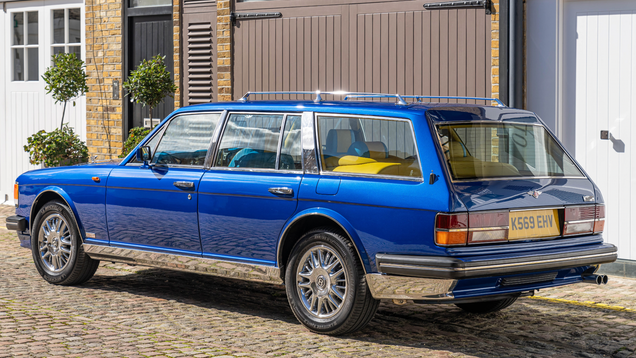The Allure of Wagons: A Deep Dive into Their Timeless Appeal
Wagons have long held a special place in the hearts of car enthusiasts, combining practicality with an aesthetic that many find irresistible. This article explores the unique attributes of wagons, their dwindling presence in the automotive market, and why they continue to captivate drivers around the world.
Understanding the Unique Appeal of Wagons
Wagons are often celebrated for their versatility. Unlike traditional sedans or SUVs, they offer a spacious interior without sacrificing driving dynamics. The low center of gravity inherent in their design contributes to a more stable and engaging driving experience. According to a study conducted by the Automotive Research Center, vehicles with a wagon design tend to have better handling characteristics compared to their SUV counterparts, making them a favorite among driving enthusiasts.
Moreover, the aesthetic appeal of a wagon cannot be overlooked. The elongated roofline and sleek profile often give them a sporty yet elegant look. This design not only enhances visual appeal but also improves aerodynamics, leading to better fuel efficiency. A 2022 survey by the International Council on Clean Transportation found that wagons generally achieve 10-15% better fuel economy than similar-sized SUVs, making them an attractive option for eco-conscious consumers.
The Practicality Factor: Why Wagons Are Ideal for Families
For families, wagons offer an ideal blend of space and comfort. With ample cargo capacity and room for passengers, they are perfect for road trips or daily commutes. The rear hatch design allows for easy loading and unloading, a feature that parents particularly appreciate when managing children and their gear.
Recent data from the American Automobile Association (AAA) indicates that families are increasingly prioritizing vehicles that offer both space and efficiency. In fact, the AAA reported a 30% increase in wagon sales among families over the past five years, highlighting a growing recognition of their practicality.
The Decline of Wagons in the American Market
Despite their numerous advantages, the availability of wagons has significantly declined in the United States. The shift towards SUVs and crossovers has overshadowed the wagon segment, leading to fewer options for consumers. A report by the Automotive News Data Center revealed that wagon sales dropped by 50% from 2010 to 2020, with manufacturers opting to focus on more lucrative SUV models.
This trend raises concerns among enthusiasts who fear that the wagon’s unique attributes may be lost. However, some manufacturers are beginning to recognize the niche market for wagons. For instance, brands like Subaru and Volvo continue to produce popular models that cater to this audience, demonstrating that there is still a demand for these vehicles.
Innovative Features Enhancing the Wagon Experience
Modern wagons are equipped with advanced technology and safety features that enhance the driving experience. From adaptive cruise control to lane-keeping assist, these innovations make wagons not only practical but also enjoyable to drive. For example, the latest Subaru Outback comes with a suite of driver-assist technologies that make long journeys safer and more comfortable.
Additionally, the integration of infotainment systems has transformed wagons into mobile hubs of connectivity. With features like Apple CarPlay and Android Auto, drivers can easily access navigation, music, and communication tools, making them ideal for tech-savvy families.
A Look at the Future: Will Wagons Make a Comeback?
While the current landscape may seem bleak for wagon enthusiasts, there are signs that the segment could experience a resurgence. As consumer preferences shift towards more sustainable and efficient vehicles, wagons may find their place once again. The growing interest in electric vehicles (EVs) also presents an opportunity for manufacturers to reintroduce wagons with eco-friendly options.
In Europe, for instance, there has been a notable increase in the popularity of electric wagons, with several manufacturers unveiling new models. This trend could inspire similar movements in the U.S. market, where consumers are increasingly seeking alternatives to traditional SUVs.
In summary, the enduring appeal of wagons lies in their perfect blend of practicality, aesthetics, and driving dynamics. While their presence in the American market has waned, the potential for a comeback remains, fueled by changing consumer preferences and advancements in automotive technology. For those who appreciate the unique qualities of wagons, the future may still hold exciting possibilities.

